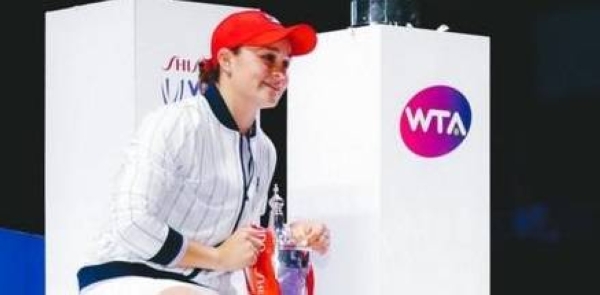
As human rights organisations and the world’s media questioned the whereabouts of the Chinese tennis player Peng Shuai, the International Olympic Committee opted for a “quiet diplomacy” approach, arguing that was the most effective way to deal with such a case.
“Experience shows that quiet diplomacy offers the best opportunity to find a solution for questions of such nature. This explains why the IOC will not comment any further at this stage,” the Lausanne-based organisation said in an emailed statement on Thursday about the case of Peng, who disappeared from public view after she made an accusation of sexual assault against a former senior Chinese official.
Yet the IOC’s approach to the Peng saga, which resulted in a half-hour-long video call between its president, Thomas Bach, and the player on Sunday, appeared to have failed to ease concerns. Instead, the committee was accused by rights activists of engaging in a “publicity stunt” for Beijing.
Such a backlash is a familiar recurrence for the IOC throughout its history since the late 19th century. Last month, in response to rights organisations’ calls to relocate the Winter Games, the IOC vice-president, John Coates, responded: “We are not a world government. We have to respect the sovereignty of the countries who are hosting the Games.”
This pragmatism from the IOC is not a new phenomenon, nor a feature unique to its dealings with China. Critics often cite the organisation’s response to the 1968 Olympics in Mexico. Ten days before that year’s Games, government forces shot dead hundreds of protesters in the Tlatelolco massacre. “Olympic Games to go ahead in spite of Mexico rioting,” reported the Guardian in a front-page story on 3 October that year.
But Susan Brownell, a former nationally ranked US track and field athlete who is an academic at the University of Missouri–St Louis, said the IOC’s response to the Peng case marked a change to its previous practices. “In the past, the IOC’s sole mission was to ensure that the Games take place whatever the circumstances. But this time around, it did get involved in what is essentially a #MeToo case, despite the criticisms that ensued.”
She added: “Thomas Bach could have chosen not to get involved and left it to the International Tennis Federation. But since 2017, when human rights were added into the host city contract, the IOC is beginning to stand up for a wider range of human rights issues than it previously did, although critics will insist on their line that the IOC does not have credibility.”
The organisation has repeatedly come under fire in recent years. In 2014, for example, it was criticised for allowing the Sochi Winter Games to take place amid Russia’s deteriorating human rights record, in particular its hostility towards the LGBTQ+ population. And when Beijing became the leading contender to host the 2008 Summer Games in 2001, some urged the IOC to think twice.
“I would be most hesitant and most reluctant to award Beijing the Olympic Games, and give the Chinese government a substantial propaganda coup, in light of that human rights record and until there’s a clear improvement in that record,” said Donald Anderson, who at the time was the Labour MP for Swansea West and a former chair of the foreign affairs select committee, in a 2001 Observer debate.
Less than a month after Peng’s revelation on Chinese social media site Weibo, her saga is transitioning from allegations of sexual assault to precarious international diplomacy. There is a lot at stake for Beijing as it faces international scepticism and potential boycotts from some western capitals.
In the meantime, a parallel narrative is taking shape among pro-government actors. “For those who truly care about safety of Peng Shuai, her appearances of these days are enough to relieve them or eliminate most of their worries,” tweeted Hu Xijin, the editor of the Chinese state-run Global Times. “But for those aiming to attack China’s system and boycott the Beijing Winter Olympics, facts, no matter how many, don’t work for them.”












